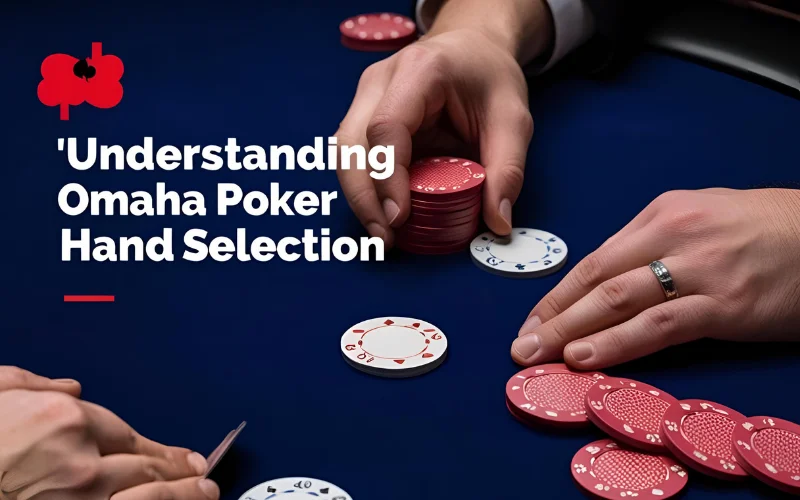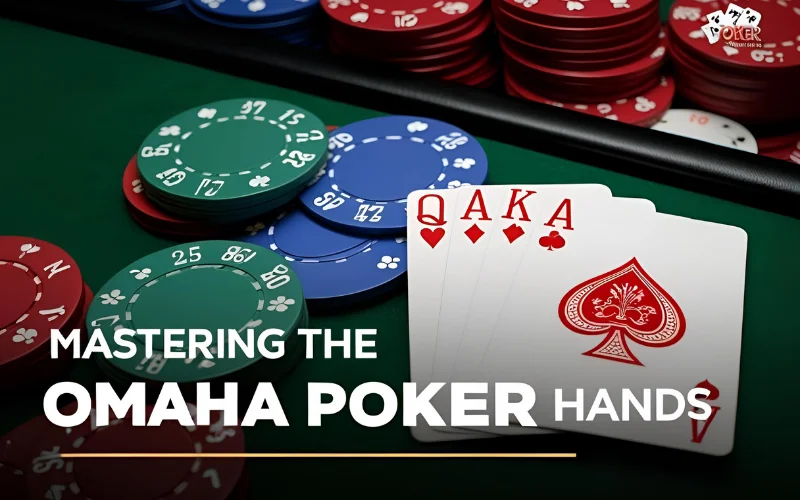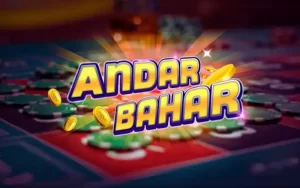Omaha Poker, a captivating variant of Texas Hold’em, has taken the poker world by storm. Its allure lies in the strategic complexity it adds with the introduction of four hole cards dealt to each player. Mastering the art of combining these hole cards with the five community cards revealed throughout the game is essential for achieving success in Omaha Poker. This guide delves into the world of hole cards and community cards, equipping you with the knowledge to build winning hands and enhance your Omaha Poker experience.
Before You Dive In: Understanding the Basics
Omaha Poker shares some similarities with Texas Hold’em but offers a unique twist. Players receive four hole cards each, as opposed to two in Hold’em. The goal remains the same: create the best five-card poker hand using a combination of your hole cards and the five community cards revealed on the flop, turn, and river. However, in Omaha Poker, you must use exactly two of your hole cards and exactly three of the community cards to form your hand. This additional layer of strategic complexity separates Omaha Poker from its simpler cousin.
The Power of Your Hole Cards
The four hole cards you receive in the Omaha Poker result to the foundation of your hand. Here’s a breakdown of the key factors to consider when analyzing your hole cards:
- Suited vs. Unsuited: Suited hands (two cards of the same suit) offer the potential for flush or straight flush combinations. However, unsuited hands can still be powerful, especially with high card combinations or pocket pairs (two cards of the same rank).
- High Cards vs. Low Cards: Starting hands with high cards (e.g., Ace-King) have the potential to become very strong. However, don’t underestimate the power of low connected cards (e.g., 7-8-9-10) that can form straights.
- Connectors vs. Gappers: Connector hands (consecutive cards) offer the potential for straights. Gapper hands (non-consecutive cards) can still be strong if they are high cards or suited.
Understanding Omaha Poker Hand Selection

Not all four-card combinations are created equal. Here are some basic guidelines for hand selection in Omaha Poker:
- Strong Starting Hands: Focus on hands with high card combinations, suited connectors, or pocket pairs. These have the potential to develop into powerful hands.
- Double-Suited Hands: Hands with two suited cards of different suits offer more flexibility in creating flushes.
- Avoiding Weak Hands: Hands with low unconnected cards and unsuited low pairs are generally considered weak and should be folded unless you see significant potential on the flop.
The Influence of Community Cards: The Flop, Turn, and River
The community cards, revealed throughout the poker real cash game, significantly impact your hand’s potential. Here’s how each stage influences your strategy:
- The Flop: The first three community cards are crucial. Do they connect with your hole cards, offering potential straights or flushes? Do they pair one of your hole cards, creating a strong two-pair possibility? Evaluate your options and adjust your strategy accordingly.
- The Turn: The fourth community card adds another layer of complexity. Did it improve your hand or benefit your opponents? This is where pot odds and reading your opponents become critical factors.
- The River: The final community card unveils your fate. Has your hand developed into a winning combination, or do you need to consider bluffing or folding?
Making the Right Choice: Combining Cards for a Winning Hand
- Versatility: Look for hole card combinations that offer multiple possibilities based on the community cards.
- Pot Odds: Consider the pot size and your bet amount to determine if continuing with your hand is mathematically sound.
- Reading Your Opponents: Observe your opponent’s betting patterns and try to gauge the strength of their hand.
Beyond the Basics: Practice and Patience
- Observe Online Games: Observing experienced players in online indian poker game can provide valuable insights into hand selection and strategy.
- Free Online Play: Many platforms offer free online Omaha Poker options where you can practice without risking real money
- Analyze Your Play: After each hand, take some time to reflect on your decisions. Were your hole card selections sound? Could you have adjusted your strategy based on the community cards?
- Seek Guidance: There are numerous online resources and poker communities (both online and offline, depending on regulations) that offer valuable learning materials and opportunities to connect with experienced players.
Conclusions
Omaha Poker offers an exciting and challenging twist on traditional poker. By understanding the importance of hole cards and community cards, you can develop your hand selection skills and navigate the strategic complexities of the game. Remember, practice, patience, and a willingness to learn are key to mastering Omaha Poker. Whether you’re playing in a poker cash game with friends or exploring the world of poker games online, prioritize responsible gaming practices and enjoy the thrill of building winning hands in Omaha Poker.







